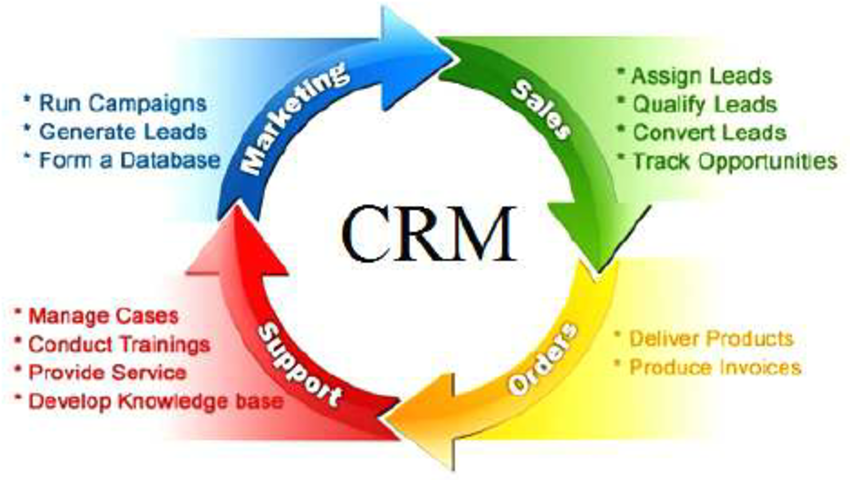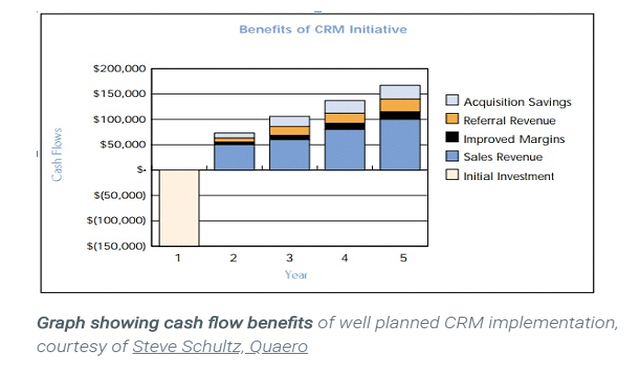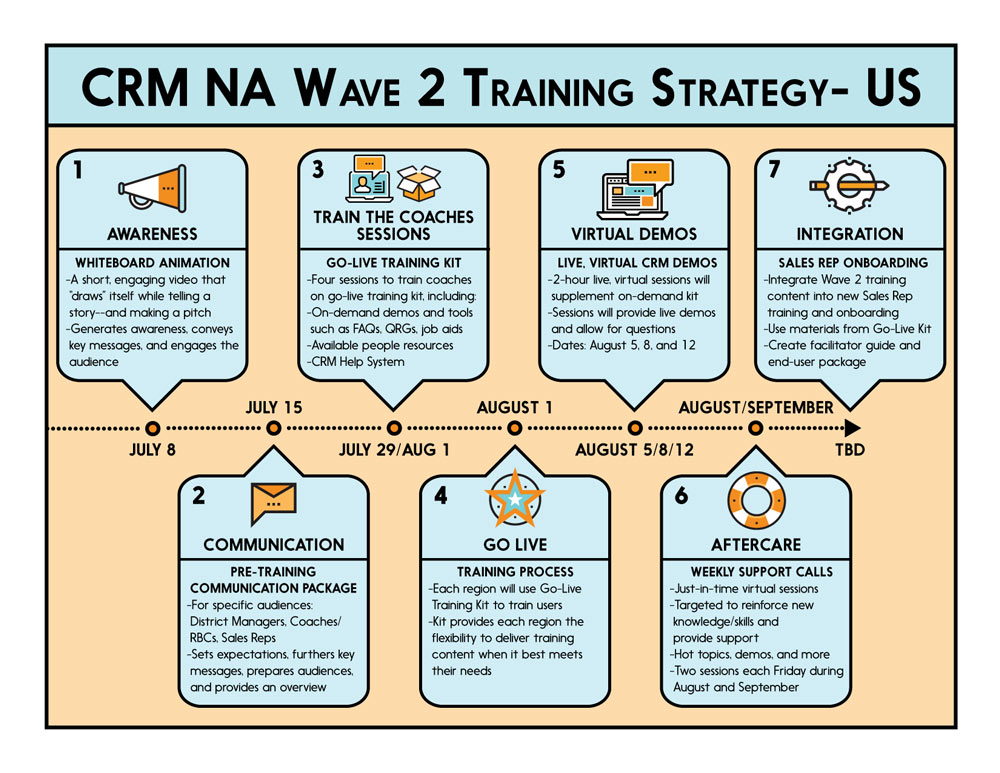
Introduction: The Power of CRM in Modern Marketing
In today’s hyper-competitive business landscape, simply having a great product or service isn’t enough. You need to understand your customers, anticipate their needs, and build lasting relationships. That’s where Customer Relationship Management (CRM) marketing strategies come into play. CRM isn’t just about software; it’s a philosophy, a way of doing business that puts the customer at the heart of everything.
This comprehensive guide will delve deep into the world of CRM marketing, providing you with actionable strategies to transform your customer interactions, boost engagement, and drive significant business growth. We’ll explore the core principles of CRM, the benefits it offers, and, most importantly, the practical steps you can take to implement effective CRM marketing strategies.
Understanding the Core Principles of CRM Marketing
At its core, CRM marketing is about using data and insights to build stronger, more personalized relationships with your customers. It’s about moving beyond generic marketing campaigns and tailoring your messaging to resonate with individual needs and preferences. Here are the fundamental principles:
- Customer-Centricity: Placing the customer at the center of all business decisions. Understanding their needs, preferences, and behaviors is paramount.
- Data-Driven Decisions: Leveraging data to gain insights into customer behavior, preferences, and trends. This information informs marketing strategies and helps personalize customer experiences.
- Personalization: Tailoring marketing messages, offers, and interactions to individual customer preferences. This increases relevance and engagement.
- Relationship Building: Fostering long-term relationships with customers through consistent communication, exceptional service, and personalized experiences.
- Automation and Efficiency: Utilizing CRM software to automate tasks, streamline workflows, and improve efficiency in marketing efforts.
The Benefits of Implementing CRM Marketing Strategies
The advantages of adopting a robust CRM marketing strategy are numerous and far-reaching. Let’s examine some of the key benefits:
- Increased Customer Loyalty: By understanding your customers better and providing personalized experiences, you can foster stronger relationships and increase customer loyalty. Loyal customers are more likely to make repeat purchases and recommend your brand to others.
- Enhanced Customer Satisfaction: Personalized interactions and proactive customer service lead to higher satisfaction levels. Happy customers are more likely to become brand advocates.
- Improved Customer Retention: CRM helps you identify at-risk customers and proactively address their concerns, reducing churn and improving customer retention rates.
- Higher Sales and Revenue: By targeting the right customers with the right messages at the right time, you can increase sales conversions and drive revenue growth.
- More Efficient Marketing Campaigns: CRM enables you to segment your audience, personalize your messaging, and automate your marketing efforts, leading to more efficient and effective campaigns.
- Better Lead Generation and Qualification: CRM helps you track leads, nurture them through the sales funnel, and identify qualified prospects, leading to higher conversion rates.
- Reduced Marketing Costs: By automating tasks and targeting the right customers, you can reduce marketing expenses and improve your return on investment (ROI).
- Improved Data Analysis and Reporting: CRM provides valuable data and insights into customer behavior, campaign performance, and sales results, allowing you to make data-driven decisions and optimize your strategies.
Essential CRM Marketing Strategies for Success
Now, let’s dive into the specific strategies you can implement to maximize the impact of your CRM efforts.
1. Data Collection and Management: The Foundation of CRM
Data is the lifeblood of CRM. You need to collect comprehensive customer data to understand their needs, preferences, and behaviors. This includes:
- Demographic Information: Age, gender, location, income, etc.
- Contact Information: Email address, phone number, mailing address.
- Purchase History: Products purchased, order frequency, average order value.
- Website Activity: Pages visited, products viewed, time spent on site.
- Social Media Activity: Interactions, likes, shares, comments.
- Customer Service Interactions: Support tickets, chat logs, phone calls.
- Preferences and Interests: Information gathered through surveys, polls, and direct interactions.
Once you’ve collected the data, you need to manage it effectively. This involves:
- Data Cleansing: Removing duplicate entries, correcting errors, and ensuring data accuracy.
- Data Segmentation: Grouping customers based on shared characteristics to enable targeted marketing.
- Data Security: Protecting customer data from unauthorized access and breaches.
- Data Privacy: Complying with data privacy regulations such as GDPR and CCPA.
2. Customer Segmentation: Targeting the Right Audience
Not all customers are created equal. Customer segmentation involves dividing your customer base into distinct groups based on shared characteristics. This allows you to tailor your marketing messages and offers to resonate with specific segments. Common segmentation criteria include:
- Demographics: Age, gender, location, income, education, occupation.
- Psychographics: Lifestyle, values, interests, attitudes, personality.
- Behavioral: Purchase history, website activity, engagement with marketing campaigns.
- Needs-based: Customer needs and pain points.
- Value-based: Customer lifetime value (CLTV).
By segmenting your audience, you can create highly targeted campaigns that are more likely to generate conversions. For example, you might segment your customers based on their purchase history and send targeted emails promoting products they are likely to be interested in.
3. Personalized Marketing: Delivering Tailored Experiences
Personalization is key to building strong customer relationships. It involves tailoring your marketing messages, offers, and interactions to individual customer preferences. This can include:
- Personalized Emails: Using the customer’s name, referencing their past purchases, and recommending products based on their interests.
- Personalized Website Content: Displaying different content to different segments of your audience based on their behavior and preferences.
- Personalized Product Recommendations: Suggesting products that are relevant to the customer’s interests and purchase history.
- Personalized Offers and Promotions: Creating special offers and promotions that are tailored to individual customer needs.
Personalization shows your customers that you understand their needs and value their business. This can lead to increased engagement, higher conversion rates, and improved customer loyalty.
4. Email Marketing Automation: Nurturing Leads and Engaging Customers
Email marketing automation is a powerful tool for nurturing leads, engaging customers, and driving conversions. It involves automating the sending of emails based on customer behavior and preferences. Common email automation workflows include:
- Welcome Emails: Sending a welcome email to new subscribers to introduce your brand and offer a special promotion.
- Nurture Campaigns: Sending a series of emails to nurture leads through the sales funnel, providing valuable content and offers.
- Abandoned Cart Emails: Sending an email to customers who have abandoned their shopping carts, reminding them of the products they left behind and offering a special incentive to complete their purchase.
- Post-Purchase Emails: Sending an email to customers after they have made a purchase, thanking them for their business and offering support.
- Re-engagement Emails: Sending an email to inactive customers to re-engage them with your brand.
Email marketing automation can save you time and effort while also improving your marketing results. By automating your email campaigns, you can ensure that your customers receive the right messages at the right time.
5. Social Media Integration: Building Relationships on Social Platforms
Social media is an essential part of any modern marketing strategy. Integrating your CRM with your social media platforms allows you to:
- Track Customer Interactions: Monitor customer interactions on social media, such as mentions, comments, and direct messages.
- Engage with Customers: Respond to customer inquiries and comments on social media.
- Personalize Social Media Content: Tailor your social media content to specific customer segments.
- Run Targeted Social Media Ads: Target your social media ads to specific customer segments based on their demographics, interests, and behaviors.
- Gather Social Listening Data: Monitor social media conversations to understand customer sentiment and identify opportunities to improve your products and services.
Social media integration can help you build stronger relationships with your customers, increase brand awareness, and drive engagement.
6. Customer Service and Support: Providing Exceptional Experiences
Exceptional customer service is crucial for building customer loyalty. CRM helps you provide better customer service by:
- Centralizing Customer Data: Providing your customer service team with access to all relevant customer data, including purchase history, contact information, and support tickets.
- Automating Customer Service Tasks: Automating tasks such as ticket routing and response templates.
- Providing Self-Service Options: Offering self-service options such as FAQs and knowledge bases.
- Tracking Customer Interactions: Tracking all customer interactions to ensure that your customer service team has a complete understanding of the customer’s needs.
- Personalizing Customer Service Interactions: Tailoring your customer service interactions to individual customer needs and preferences.
By providing exceptional customer service, you can increase customer satisfaction, build customer loyalty, and improve your brand reputation.
7. Sales Force Automation: Streamlining the Sales Process
Sales force automation (SFA) is a critical component of CRM. It involves automating sales tasks to improve efficiency and productivity. SFA tools can help you:
- Manage Leads: Track leads, qualify them, and assign them to sales representatives.
- Track Sales Opportunities: Track sales opportunities through the sales funnel.
- Manage Contacts: Manage customer contacts and interactions.
- Automate Sales Tasks: Automate tasks such as email follow-ups and appointment scheduling.
- Generate Sales Reports: Generate sales reports to track performance and identify areas for improvement.
SFA can help you close more deals, increase sales revenue, and improve your sales team’s productivity.
8. Analyzing and Measuring Results: Continuous Improvement
Data is only useful if you analyze it and use it to improve your results. You need to track key performance indicators (KPIs) to measure the effectiveness of your CRM marketing strategies. Key metrics to track include:
- Customer Acquisition Cost (CAC): The cost of acquiring a new customer.
- Customer Lifetime Value (CLTV): The predicted revenue a customer will generate over their lifetime.
- Customer Retention Rate: The percentage of customers who remain loyal over a period of time.
- Churn Rate: The percentage of customers who stop doing business with you.
- Conversion Rates: The percentage of leads who convert into customers.
- Return on Investment (ROI): The return on investment for your CRM marketing efforts.
- Customer Satisfaction (CSAT): Measure customer satisfaction through surveys or feedback.
- Net Promoter Score (NPS): Gauge customer loyalty and willingness to recommend your brand.
By analyzing these metrics, you can identify areas for improvement and optimize your CRM marketing strategies for better results. Regularly review your data and make adjustments to your strategies as needed.
Choosing the Right CRM Software
Selecting the right CRM software is crucial for the success of your CRM marketing efforts. There are many different CRM software options available, so it’s important to choose one that meets your specific needs and budget. Consider the following factors when choosing a CRM:
- Features: Does the software offer the features you need, such as contact management, sales force automation, email marketing integration, and customer service tools?
- Scalability: Can the software scale to meet your growing needs?
- Ease of Use: Is the software easy to use and navigate?
- Integration: Does the software integrate with your existing systems, such as your website, email marketing platform, and social media accounts?
- Cost: Is the software affordable?
- Support: Does the software provider offer adequate support?
Popular CRM software options include:
- Salesforce: A comprehensive CRM platform for businesses of all sizes.
- HubSpot CRM: A free CRM platform with powerful marketing and sales tools.
- Zoho CRM: A versatile CRM platform for small and medium-sized businesses.
- Microsoft Dynamics 365: A comprehensive CRM platform that integrates with other Microsoft products.
- Pipedrive: A sales-focused CRM designed for small businesses.
Take the time to research different CRM software options and choose the one that is the best fit for your business.
Best Practices for CRM Marketing Implementation
Implementing CRM marketing strategies successfully requires careful planning and execution. Here are some best practices to follow:
- Define Your Goals: Clearly define your CRM marketing goals before you start. What do you want to achieve with CRM?
- Develop a Strategy: Create a comprehensive CRM marketing strategy that outlines your goals, target audience, and tactics.
- Get Buy-In from Stakeholders: Ensure that everyone in your organization is on board with your CRM marketing strategy.
- Train Your Team: Provide your team with adequate training on how to use your CRM software and implement your CRM marketing strategies.
- Start Small and Scale Up: Don’t try to implement everything at once. Start with a few key strategies and gradually scale up as you gain experience.
- Test and Optimize: Continuously test and optimize your CRM marketing strategies to improve your results.
- Prioritize Data Security and Privacy: Always prioritize the security and privacy of your customer data.
- Regularly Review and Update Your Strategy: Your CRM marketing strategy should be a living document. Review and update it regularly to ensure it remains effective.
CRM Marketing: The Future is Now
CRM marketing is no longer optional; it’s essential for success in today’s competitive business environment. By implementing effective CRM marketing strategies, you can build stronger customer relationships, increase customer loyalty, and drive significant business growth.
Remember, CRM is not just about technology; it’s about a customer-centric mindset. It’s about understanding your customers, anticipating their needs, and providing them with exceptional experiences. By embracing the principles of CRM marketing, you can unlock the full potential of your business and achieve lasting success.
The journey to effective CRM marketing is ongoing. The market is constantly evolving, and customer expectations are continually rising. Keep learning, keep adapting, and keep putting your customers first. The rewards are well worth the effort.
Conclusion: Embrace the Power of CRM
In conclusion, CRM marketing is a powerful tool for businesses looking to thrive in today’s market. By focusing on the customer, leveraging data, and personalizing interactions, you can build lasting relationships, drive sales, and achieve sustainable growth. Embrace the strategies outlined in this guide, choose the right CRM software, and commit to continuous improvement. The future of your business depends on it.




